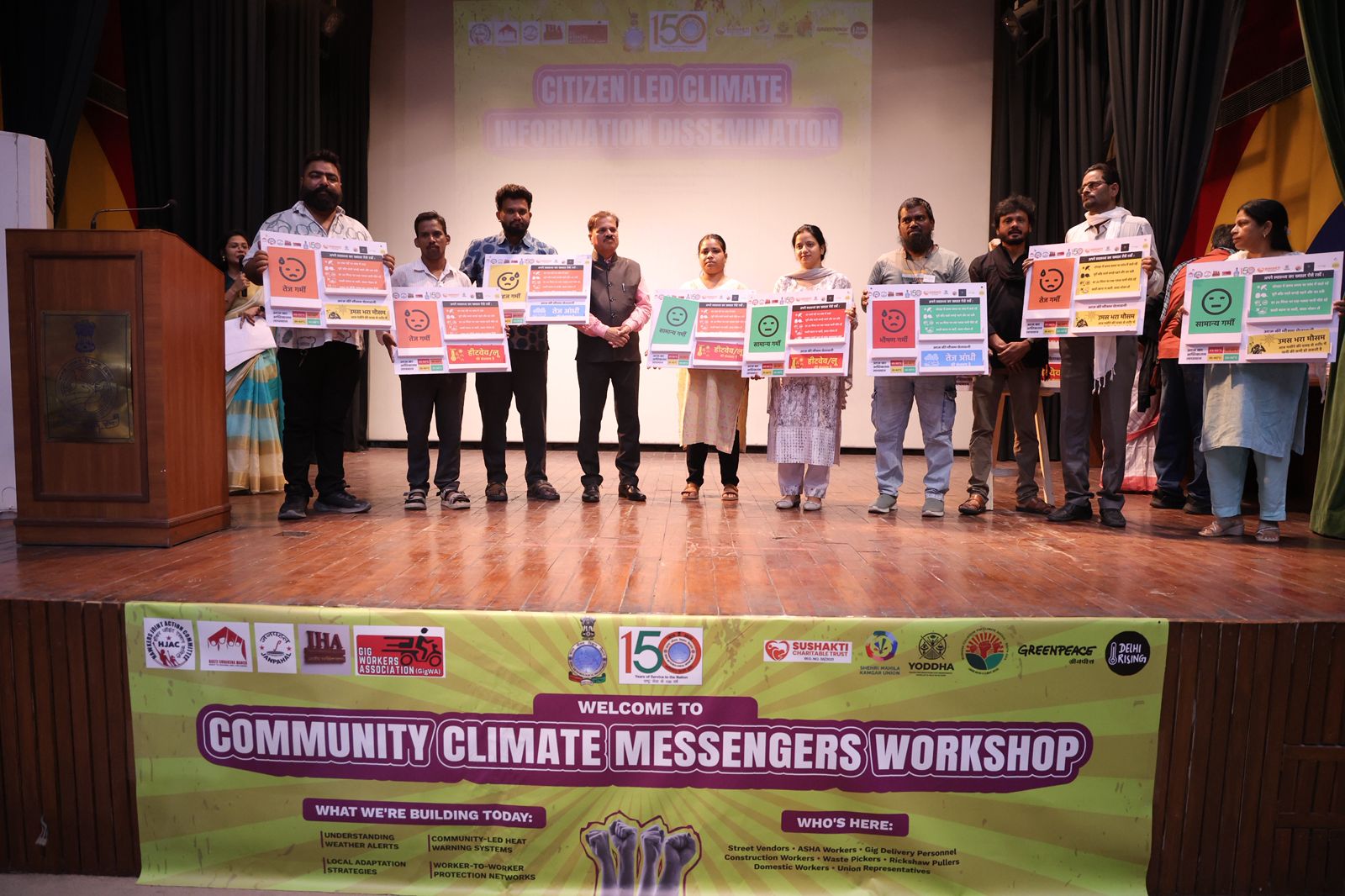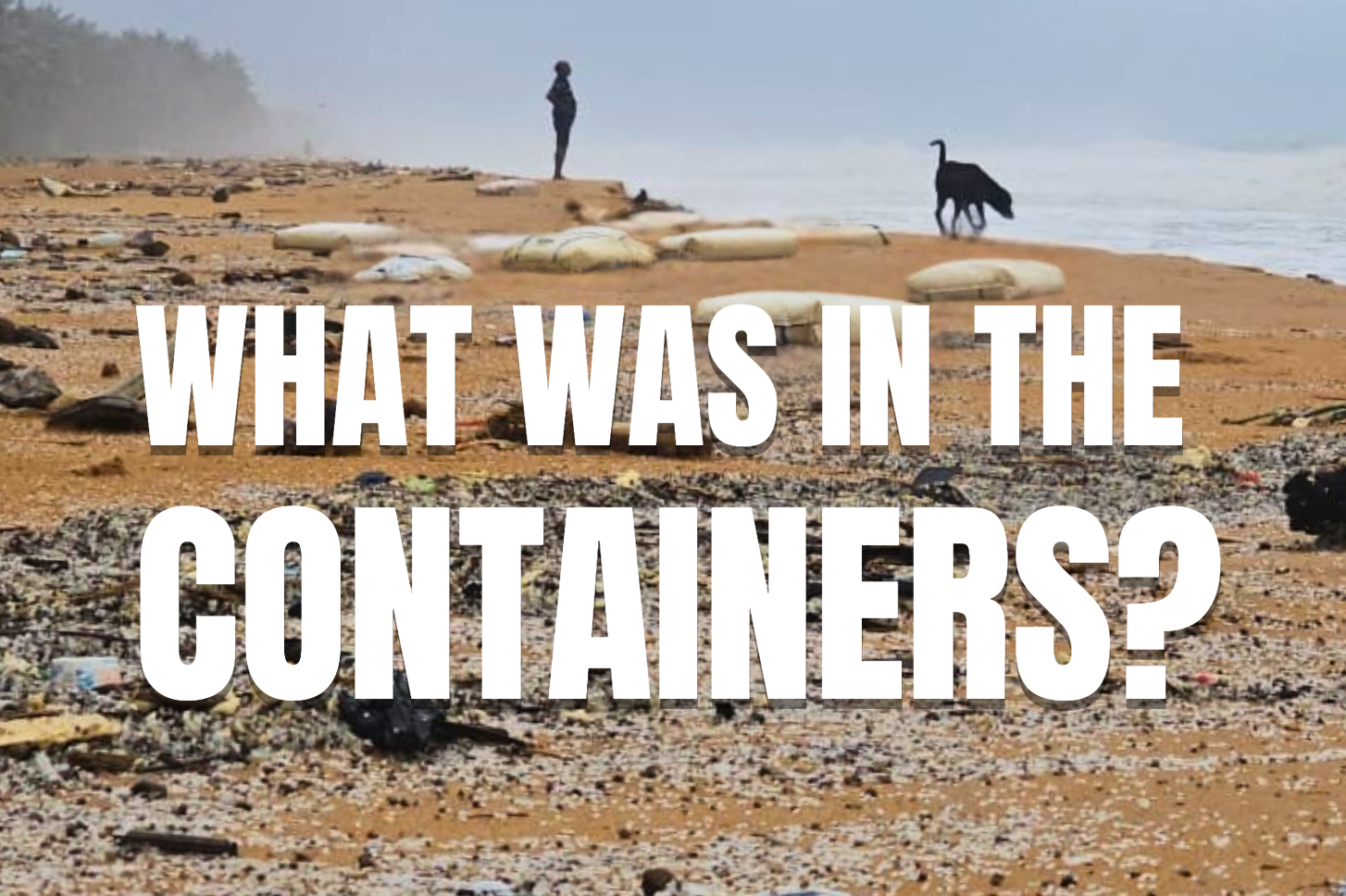(Thousands of citizens urge CPCB to revise the NAAQS in accordance to the prescribed guidelines of WHO)
New Delhi, April 22: Greenpeace India has delivered the voices of over 10,000 citizens to the CPCB who are demanding a revision in India’s air quality standards. The citizens have signed a petition and postcards addressed to the Central Pollution Control Board (CPCB) demanding a speedy revision of the National Ambient Air Quality Standards(NAAQS). The postcards have been mounted on an 8 foot high wire tree, evoking the multi-cultural symbolism of the Tree of Life. The art installation created by Satish Kumar and painted by Greenpeace India volunteers, echoes the demand for revision of air quality standards using the direct messages written by people.
Citizens, especially from vulnerable groups, including mothers, children, senior citizens, urban poor and other marginalised communities are amplifying this message. These communities are facing the extreme impact of poor air quality and are demanding their right to a healthy environment from the CPCB. “Pollution is aggravating health complexities particularly for women and children. Not only this but it is also now becoming a social and psychological issue and impacting women across. We need clean air for us, for our future generations,” said Bhavreen Kandhari from Warrior Moms.
On September 22, 2021, the World Health Organisation revised its air quality guidelines for the first time in 15 years. The new guidelines are derived from strong scientific evidence on the extensive damage caused by air pollution on human health. In short, there are no safe limits to pollution. Hence, the new air quality guidelines approve of significantly lesser concentrations of key air pollutants.
As part of bringing direct change and initiating mindset shift, Greenpeace India’s “Power The Pedal” campaign is working with low-wage women labourers in the national capital and Bengaluru to build cycling communities. “Though I am proud that I cycle but there we don’t have enough cycle tracks and are constantly exposed to pollution from other vehicles. If the government can focus on parking facilities for motorists, why can’t they prioritise cyclists as well, at least we are not polluters but proud climate warriors helping in fight against pollution,” said Neetu Thakur who is part of a cyclist community in Neb Sarai.
According to a recent report based on global air quality data compiled by IQAir, 35 of the 50 most polluted cities are in India.
“Greenpeace India believes our nation’s ambitious climate target must be supported by concrete action on ground such as revision in air quality standards, improved infrastructure for public transport in a bid to phase out fossil fuels,” says Avinash Chanchal, Campaign Manager at Greenpeace India, while also adding, “The present National Ambient Air Quality Standards (NAAQS) is insufficient and needs immediate revision. All the Non-attainment cities should also aspire to move to NAAQS in a time-bound manner and then progress towards meeting the WHO guidelines.”
In the letter submitted to CPCB, Greenpeace India has also sought for the process of revision to be based on scientific evidence and periodically reviewed every 5 or 10 years. The letter further urges the CPCB to engage the larger public, experts and civil society for consultation and feedback. The longer the delay between science and regulation, the longer the country suffers from the health and economic impacts of air pollution.
For any further information:
Rohin Kumar
+91-9013971997
[email protected]
Avinash Kumar Chanchal
+91-8882153664
[email protected]




Discussion
🌎🌳🌳🌳🌳🌳 SAVE NATURE 🌳🌳🌳🌎 SAVE OUR PLANET 🌍🌳🌳🌳🌳 SAVE LIFE'S 🌳🌳🌳🌎💐🙏🇮🇳 INDIA 🇮🇳🙏💐
Check pollution levels and.stop axing trees and plant more trees for betterment and health. Don't buy oxygen plant trees